Rise Of A Texas Bluesman | Stevie Ray Vaughan | Amplified
Blues heritage of his home state to a global audience but also reinvigorated the genre itself and introduced it to a new generation of listeners stevie just seemed to live and breathe music every single minute it was just his whole life this was a burning fire that didn’t have
Anything to do with what people thought you’ve witnessed some of his live gigs where you would think you know he’s going to just break the guitar in half with his hands it’s genuine it was sweet it’s not the kind of intensity you think oh why does he have to act like
That you know only he could come up with that type of emotion without it being an act this film not only looks at the formative years of bourne’s career his influences his first recordings and the various bands in which he honed his craft but also traces the history of
Texas blues itself and identifies vaughn’s place within a larger tradition it is the journey of both the musical form and the single-minded musician who brought it back into the spotlight his guitar plan just jumps right off the record it just grabs a hold of you and it’s just undeniable
What he did with the sound was totally unique and nobody has come close stevie just did it because he had his own ideas and he was committed to his music and if he’d end up just playing clubs on the rest of his life rather than sacrificing who he was musically he
Probably would have chosen playing clubs the rest of his life he knew what he wanted to do stevie brought respect back to blues he brought recognition back to blues but by making it a completely unique original and modern sound again this guy was really a master artist And i believe i can run a decent marathon thank you very much download valee now when stevie ray vaughan broke into the mainstream in the early 1980s he cut a distinctive and contradictory figure seemingly archaic and out of date yet also explosive and refreshingly different
He was a standard bearer for a form of music that had been dismissed as unfashionable and unmarketable for over a decade the blues and his global success revitalized the genre blues has always had ups and downs but it had been down for a long long time record deals
Were very few and far between just being taken seriously was was not not happening so for stevie to make such an impact worldwide change that changed that all of a sudden people were starting to pay attention and it really helped everyone from from the ground up [Applause] nobody else is making this music by this stage or nobody is making it and selling it in any sizeable quantities he refreshes the blues he makes the blues hip again so hugely significant both in terms of its influence on white rock and roll but also
In what it does to black music johnny hooker in the 1980s and early 1990s sells more records in that sort of decade than he sold in 40 years up until that point and stevie ray vaughan has one hell of a lot to do with that stevie ray vaughan almost
Single-handedly you know there are other people there’s george thorogood there’s uh robert cray but stevie ray vaughan is the superstar he’s the man who puts blues back on the map and makes people want to listen to the blues again and realize that there’s something worth hearing vaughn wasn’t only creating a resurgence
Of interest in the blues but in particular he and his band double trouble presented a distinctive region-specific strand of this genre born from a rich tradition of music emanating from the american territory in which they were raised texas this large state briefly a republic in its own right had a singular history
That would itself become etched into the music that emerged from it propelled by a philosophy of rugged individualism at first it was the home of ranchers and cowboys the icons of the american frontier yet where these inhabitants looked to cultivate the land texas would soon become forever associated with the
Riches found under its soil at the dawn of the 20th century This discovery changed the state from a vast yet sparsely populated rural province into one of the largest economies in the country yet the musical tradition that inspired stevie ray vaughan and countless other white texans sprung from the laborers of one of its other key industries in the
Early 20th century in the cotton fields of east texas and in the poor black communities set up around them the sharecroppers developed the blues and it was from this marginal world that the first notable texas bluesman emerged blind lemon jefferson blind lemon jefferson is the first great male blues
Guitarist he was born we think around 1893 the son of sharecroppers by 1917 he’s in dallas playing a guitar on street corners and already becoming a big star i mean it’s said that he was earning 150 a week in tips on the street now in 1917 that
Is one hell of a lot of money he starts recording in 1926 for paramount and he goes to chicago to record very short recording career he’s only recording for for four years before he dies but the recording industry is in its infancy in 1926 when he starts and
Prior to that we’ve had mammy smith and and some of the the female blues singers really singing back by what you’d have to call a jazz band but blind lemon jefferson is the first solo guitarist playing the blues on record Hey She told me late last night you don’t need He’s got this kind of haunting moaning voice these fantastic songs like see that my grave is kept clean and black snake moan and he’s a phenomenal guitar player and you can hear that even through the hiss and the crackle of the records because the quality of the preservation of these recordings
Is he’s not that great but he’s a phenomenal guitarist he’s playing these single note lead runs and then these bass lines and these choppy rhythms and pulls and tremolos i mean in a way you can hear all the techniques that we have come to associate with electric guitar playing
Being essayed really on on this rudimentary acoustic guitar where jefferson provided the template for the blues guitarist two of his proteges would further his style and develop the sound of texas blues beyond its acoustic origins and they too would become hugely influential figures t-bone walker and lightning hopkins
T-bone walker was born in texas in 1910 so he’s about 17 years younger than blind lemon jefferson but he hooks up with jefferson in the 1920s um becomes his eyes leads the the blind man around and of course while he’s doing that um learns all these guitar tricks Um The hallmark of texas blues has always been the guitar that’s what defines the texas sound it’s the playing of the guitar the way one approaches that instrument T-bone emulated the style of flying lemon he does take a lot of the patterns and the kind of single string arpeggio runs the one here’s in blind lemon but he’s applying them to an electric guitar an electrified guitar t-bone introduced the electric guitar as a lead instrument in
Rhythm and blues t-bone was highly sophisticated t-bone was a showman he electrified the audience not only with his guitar playing which was incredibly virtuosic but just the way he presented himself on stage Mother says he was born lucky but remember you got to die one day whoa yeah she was born Remember you gotta die one day lightning hopkins is another pioneering texas blues jefferson in the 1920s i mean at this point he’s playing an acoustic guitar but he too picks up an electric guitar there are some sessions that are particularly significant in this context which he recorded for the
New york-based herald label in 1954 where he plugged in and i guess he took he took the the t-bone walker style of electric guitar and just amped it up rocked it up a little bit more so you can see all of these things as different stations of the cross really on the
Journey to a fully electrified texas blues sound whoa Whoa she won’t treat nobody right There’s a further link to the kind of blues rock element that stevie ray vaughan eventually comes to represent because um he gets taken up by the rock and roll crowd if you like you know he’s opening shows for the the grateful dead i think at one point in
The late 60s he even records an album with uh the 13th floor elevators who were this texas garage band so again you know the the blues and the rock are coming closer together in the person of lightning hopkins and there’s a nice uh symmetry really because he he lives on
Till 1982 uh which is when he dies and of course he’s is just when stevie ray vaughan is getting going for white texans in the 1940s and 50s however awareness of the work of walker and hopkins was minimal although texas was in part culturally distinct from the deep south states to
Its east it shared their appalling racial politics and segregation was firmly in place and popularly supported across the state yet the music of the bluesman did enter the consciousness of young white artists and as the melding of styles that was rock and roll exploded across america white texan bands began to incorporate
The sounds pioneered by these black musicians into their own work one of the great things about music in texas we didn’t pay much attention to segregation laws the laws said blacks and whites and even browns mexican-americans weren’t supposed to mix they always did with music and in the 50s for instance in dallas
The best-known rock and roll act they’re really the first local band of any prominence was called the night caps and they were white boys doing rhythm and blues You get your girl now get mine you’ll go For all kinds of kids growing up in texas and certainly the song thunderbird which stevie vaughn later covered many people have covered it was always there as the next wave of the popular musical revolution hit the us in the mid-1960s following the coming of the british invasion a handful of white texans were
Again bringing their distinctive blues heritage into the spotlight this time to both national and international audiences yet many of these acts like the psychedelic garage band the 13th floor elevators had to travel to the west coast to make their name and the most prominent singer janice joplin actively disassociated herself
From her home state at the close of the decade however a figure emerged who aimed to carry the torch sparked by blind lemon jefferson back at the start of the century johnny winter signed in 1968 to columbia records with the biggest advance in the history of the recording industry was a
White singer and guitarist who proudly identified himself as a texas bluesman winner was the guy that started all this and it was columbia signing him and offering him crazy money at the time that changed the rules and changed the way music was being looked at in texas Now columbia signed him steve paul made him into a star basically selling black blues as played by an albino white as rock and roll and you know of course johnny winter played uh woodstock uh with this band and it was very telling he had a power trio basically uh which
Really set the stage for bands like zz top and later for stevie ray vaughan in double trouble and in his band was a bass player that came out of dumas texas up in the panhandle by the name of tommy shannon and a drummer by the name of uncle john turn do If you think of texas blues as being a dirt road through the countryside johnny winner paved it he put the asphalt down in part what distinguishes texas blues from say mississippi blues is that the black population in texas was much more dispersed throughout the state there wasn’t this heavy
Concentration there had been in east texas but when the cotton fields were devastated by the boll weevil people moved to the cities of houston and dallas to some extent to austin but it was so it was a much more diverse community johnny winter grew up in the golden triangle in the area around
Beaumont and orange which produced janus joplin and others these were people who were connected to a kind of swamp loose and they were connected to the cajun and creole sounds that they grew up hearing being so close to louisiana but johnny winter created a certain mythos about the whole idea of texas
Blues and texas music and in that way he influenced young musicians musically but i think in a bigger sense he helped define the marketplace the branding for what the world began to recognize as being texas blues despite winter’s swift rise to prominence in the 1970s new musical forms flourished and the blues once
Again returned to the margins it would remain there for more than a decade before another artist emerged who both revitalized the genre itself and re-established the brand that winter had developed dallas texas it was here in 1954 that stevie ray vaughan was born at first raised along with older brother
Jimmy in the cockrell hill area of the city by parent jim and martha after numerous relocations the family settled in the district of oak cliff in 1961. jimmy and stevie vaughn grew up in oak cliff which in the context of dallas texas even today it’s south of the trinity river
It’s blue collar working class whatever you think of dallas is this new shiny you know the tv series the dallas cowboys glittering buildings that’s all north dallas that’s not oak cliff that was traditionally the black part of town and today remains very african-american mexican-american mexican immigrant and talking about a music history
Oak cliff is where t-bone walker really got his chops aaron t-bone walker was also known as oak cliff t-bone stevie’s family was i think relatively typical in the sense that his father who they call big jim was a blue-collar worker that traveled wherever the jobs were so the family was uprooted at least
Temporarily on occasion while he worked particular jobs stevie’s mother also relatively typical in the sense that to make ends meet she worked as an office worker as a secretary so that left some time for stevie and jimmy at home alone and who knows maybe that contributed to their
Interest in playing guitar because they had to fill their time with something the brother’s interest in music was more than just a time filler however it soon became a passion when they moved to oakcliff in 1961 first jimmy and then stevie had begun playing the guitar yet the popular music
Of the time was far from stimulating despite being an incendiary force in the mid to late 1950s by now the rebellious fervor of rock and roll had died down and the charts were dominated by crooners and doo-wop ensembles for youngsters growing up in the segregated world of the south however
The radio provided access into a far more raw and vital musical world that was emanating almost unnoticed from the black communities around them and these stations and shows inspired a whole generation of white blues musicians kids in texas kids growing up in dallas at night when you had am radio and you
Had these stations that were called clear channel stations 50 000 watt stations where you could hear their signal from all over the place in dallas and in fort worth where i grew up you could pick up wls in chicago they had top 40 radio wlac in nashville the
John r show where john art laid down some pretty serious blues and he also sold blues music through randy’s record shop and also you cannot discount the border blasters the mexican radio stations on the border on the mexican side of the rio grande that would exceed the power limits of
The united states so from the big x x e r f x e g x e l o that’s where i heard wolfman jack turned me on to a generation of blues artists late night on the radio i could get those powerful stations out of louisiana and del rio the wolf man jack
When i heard blues i just i had to find out what it was so the music just just just captured my my imagination and i didn’t even know what to call it there was a radio station in dallas called wrr and at 10 or 11 o’clock at
Night jim lowe came on with cat’s caravan and it was everything was all different then and of course i was supposed to be in bed asleep and i was in bed but i wasn’t asleep it was the typical thing you have that radio right there and you turned it
Up loud enough where you can hear it but mom and dad don’t and and and that’s when the blue that’s when jim lowe he was playing lightning hopkins and all the excelo records that’s where i first heard lazy lester light and slim all the accello stuff and and
All the other stuff that was more more bluesy and more hardcore r b that was a little bit too too deep for uh top 40 in the daylight I And gone so now we knew what labels to look for so we’d go to our record store and just go through stuff and when we saw duke records or chess records or xlr records vj records when we saw those labels like oh red flag you know so
We discovered a lot on our own with some help from jim lowe and late night radio the subterranean nature of this interest in blues music shifted almost overnight with the coming of the british invasion in 1964 As the beatles the rolling stones the yard birds and many other acts introduced a wider american audience to music that had previously been marginalized blues was elevated into the mainstream in oak cliff texas jimmy vaughan was becoming a serious scholar of the genre and passing his knowledge on to his younger brother
What has inspired you throughout who who is your your el supreme um my brother jimmy vaughn he’s the reason i got started and he’s also the inspiration for a lot a lot of musicians um because of him i was i was able to hear bb king freddy king
Albert collins albert king lonnie mack buddy guy muddy waters holland wolf kenny burell jimmy smith on and on i don’t know and they’re all very big influences stevie was fortunate growing up to have an older brother who was bringing home music and he was bringing home everything from blues to rock and roll
And then also about the same time you’ve got the beatles coming on ed sullivan and the whole british invasion music exposing americans to blues music and certainly stevie got all of those influences all at once with popular music entering its most fertile period since the initial wave of rock and roll
In the mid-60s both jimmy and stevie joined their first high school bands the pendulums and the chantons playing cover material at dances and talent contests the pendulums soon progressed to a wider circuit however and in this group jimmy vaughan began to attract attention by 1966 he was drafted into the chess
Men who had enjoyed some local success and soon the elder of the vaughn brothers was being singled out as one of the best guitarists on the dallas scene in dallas there were labels like abnet records which had these popex john and robin in the in crowd scottie mckay
Who is really trying to imitate the yard birds doing blues the five americans had national hits broke out of dallas with i see the light one of these bands that kind of rose to prominence was the chess men now jimmy vaughn joined it after the chessmen were already kind of
Established they had had a couple local hits and when i say hits there were singles that probably sold 5000 copies maybe but that would get you gigs at t-shirts/” target=”_blank”>teen cant-shirts/” target=”_blank”>teens and clubs like luanne’s and maybe if you’re lucky enough you could back up someone like jimmy reed when jimmy reed came and
Played luanne’s for the white kids what it did for jimmy is it gave him exposure they were a big deal in dallas what’s really strange about that is when jimmy joined the band he was like 15 and just almost overnight he became the man at 15. when
All the guitar players are going you got to hear this kid jimmy’s name got around and and i i finally heard him in 1967. he got a gig with band the chessmen and there was a sunday afternoon matinee at this club and and i heard jimmy i was
Excited to hear this kid that i’d been hearing about obviously seven years older than him and when i heard him even though they were just doing covers i went well i i see why i had heard of him i thought he was at 17 i thought this guy’s better than
He’s just he’s good we we will hear more jimmy i i that and most people felt that way if the chess men offered jimmy vaughan exposure the group provided something else for his younger sibling stevie was befriended by their drummer and vocalist doyle bramhall who gave the 12 year old both encouragement and
Support and the pair would become lifelong friends and occasional musical allies yet it was through jimmy’s record collection that the young guitarist found his inspiration and in 1967 he was introduced to an artist who would prove a significant influence on his subsequent style and sound jimi hendrix
When stevie was just getting started on guitar jimmy brought home a jimi hendrix record purple haze and i think this really knocked stevie for a loop Excuse me Jimi hendrix is probably the single most significant figure in the fusion of blues and rock and in it’s it’s a much derided word these days but in making it progressive and by that i mean the genuine sense of the word of of moving this music into new uncharted territory i uh you know
He’s technically he’s a phenomenal guitarist he’s he’s got a a deep reverence for the roots of the blues but he’s also played r b with the eisley brothers and so on and so forth so so he’s got all the bases covered He’s got this fantastic technique coupled with this fertile inventive imagination which leads him to experiment with sounds that you wouldn’t previously have associated with an electric guitar one of the things that’s interesting is that these people who have such a huge profound influence on everything that follows them so many of them
Are recording for such a short period of time you know we’ve talked about how blind jefferson’s recorded career only lasted for four years and of course pretty much the same is true of jimi hendrix as well there’s his session work prior to that but he begins recording
With jimi hendrix experience in 1966 and by 1970 he’s dead and in the wake of hendricks rock music became heavier and the spotlight shifted from front men to virtuoso lead guitarists first cream and then led zeppelin emerged from the uk ushering in a new era of lengthy solos and extreme volume
And stevie incorporated these new trends into his own playing now at high school and a member of the band the brooklyn underground although a shy and quiet t-shirts/” target=”_blank”>teenager he was beginning to make his presence known to fellow musicians i met him in the lunch room at kimball high school and probably
68 69 i think it was his uh sophomore year and it was my senior year and he just uh come up to me one day and hi roddy i didn’t know who he was and uh he said well i’m jimmy vaughan’s little brother oh okay you know and i
Was i was already playing with bands you know from for you know three four years the first time we jammed together i knew this guy’s a serious guitar player and uh he would call me occasionally hey can you come by you know because i had a car you know he didn’t
We started going around town a little bit you know so i remember the first time i said hey let’s go down to the aragon ballroom and it was this black club way over in south dallas and uh so we go into this place and uh the the guy at the front
At the front door you know he’s got one eye you know stevie go on in man so here i am i’m 18. i can’t even get into the clubs and stevie’s getting me in the door so we’d go in and sit in and play and his big jam song was always crossroads the
Clapton version that was that was the big song he’d get up there tear it up everybody loved it Baby clapham had a huge effect on stevie he could lip sync an air guitar every riff you know and and spent hours and hours learning his style but at the same time my brother gave me a albert king album one christmas it was live wire blues power
And uh i loaned it to stevie and i said i mean you got to hear this you know so a year and a half later i get the album back and i still have it it has my name on there to make sure that he would know whose it was
It was albert king a mississippi-born guitarist and singer who had only risen to prominence in 1967 while he was in his late forties who would become the dominant influence upon the young vaughn drawing the t-shirts/” target=”_blank”>teenager’s attention away from british players to the authentic heart of the blues What were some of the tunes if you can remember you know some of the slow blues and what are some of the things that uh to help to develop your style albert king records for one thing baby king live at the regal uh albert king brought under a bad sign i guess it
Was called first or was it king of the blues guitar i think it was born under bedside it’s what they were calling it at the time i remember seeing out believe it or not albert came on tv doing doing bond under a bad side and i was like yes
When singer songwriter and future collaborator mark benno was first joined on stage by stevie in 1969 king style had by now become the key inspiration for the young guitarist and his technique impressed the more established musician he got up there and he played a kind of a skeletal albert king he didn’t really
Have all the the the cards in the deck put together yet but he had a really sweet vibrato and an incredible tone and i remember people screaming and it was already a phenomenon but uh he was no master of the guitar but he was really talent for talented for a
You know 98 pound kid but he had a lot of obstacles you know being jimmy vaughn’s brother and at the time jimmy was uh really not nice to anybody it’s not all it’s not all sweet mary poppins stuff here i think jimmy had some tough guys that he patted himself
After and guitar players don’t generally like each other very much anyway it’s a competitive uh gunslinger type deal and it sure was back then and i remember he told stevie listen you start teaching yourself how to play guitar don’t ever play one of my licks again you play that lick again
And and and i’m gonna beat your butt and i and and what happened that night you know at the end of goal is he played that lick again which was one of jimmy’s favorite licks and let’s just say that i witnessed something that kind of shocked me he uh he uh
Encouraged him to teach himself to play after that night although jimmy vaughan had begun to treat his younger brother in a harsh and irritable manner other musicians on the scene were more nurturing no longer interested in playing covers of top 40 material in 1969 jimmy had formed the blues group texas storm with
Doyle bramhall and singer paul ray and these band mates actively encourage stevie’s development jimmy and i were playing a band together called the storm texas storm and uh big jim and martha came in with stevie and he was just a little kid 69 so whatever that made him but uh at the break
I had this old gretch country club fat guitar look like furniture looked like a coffee table and uh stevie was enamored of the look of the guitar and all so during the break he came over and he said can i can i look at your guitar and because jimmy was playing even once
A while just you know just to be playing it and uh he got it and was sitting there on the stage and he said uh it’s still starting monday you know mind if i play you know and i’ll see the story monday and i said i’ll just sit
Right there okay this is good we’re sitting on the edge of the stage and there’s a break so uh but it’s just me as stevie did start me monday and that’s when i went he’s learned some lessons but he wasn’t there yet but he i mean he had all had all the
T-bone and jimmy and all the people he’d heard And stevie was bringing these influences and techniques into his own ensembles having graduated from the brooklyn underground and another blues rock cover band southern distributor in 1970 he joined a far larger unit liberation who had already established themselves on the dallas club circuit here he met saxophonist jim tremier
Liberation was a ten piece horn band we had two lead singers and i had tonsillitis in my senior year in high school when i came back after tonsillitis stevie was in the band and my impression with of him was he played better than anybody i’ve ever heard up to that point stevie
Although he was a rock player back then he was totally st-shirts/” target=”_blank”>teeped in blues but he liked playing clapton licks he liked playing crossroads he liked playing jimi hendrix but his first love was blues i had a car we would drive after school he would have his guitar with him he sat
In the car the whole time playing guitar he would play guitar he would play guitar he would play this and that and he would repeat things over and over again we would go to his house listen to records he loved john lee hooker there was a
John lee hooker album he would listen to over and over and over again One of my memories is a song called boogie woogie all night long and stevie would play that song over and over there was sort of a false ending where john lee hooker kind of can and stevie loved the ending and he copied it exactly like john lee hooker
And he would play it 50 times in a sitting liberation was a short-lived outfit yet its live shows initiated the 15 year old vaughn on the dallas club circuit shortly after he left the band in september 1970 he was then offered the chance to record in the studio for the first time
Local businessman john bothwell was funding an album project entitled a new high which would compile the work of five dallas high school bands and stevie was invited to join cast of thousands on the record a unit formed by songwriters bobby foreman and jim rigby bobby foreman had heard him play and
Then he calls and says this guy’s unbelievable you’re not gonna believe how good he is at the time jimmy vaughn was everybody said that’s the best in texas and there’s no question and stevie was sort of you know the little kid brother i would see him in school
But he was so quiet and we all thought he was a druggie which he may have been too but the reason he was like he was was because he was play sneaking out at night and playing in clubs at 15 16 years old so he was somehow playing all night
Maybe getting a couple hours sleeping coming back and getting through school the project was to be five bands one from each of the south dallas high schools each band would do two songs so there’s an album with ten songs the boys in the band would sell these albums as
Fundraisers they would actually get a little bit of money you know a dollar here and there and the promoter would submit this to local radio stations and whichever band got the most airplay was going to get to record their own album there’d been a group in fort worth called blood rock
Who did a song about a traffic accident where somebody bleeds to death and they’re like a one hit wonder so that was enough success for this manager to think okay i can do this i’ll i’ll put this together i’ll pay for the recording studio i’ll promise these kids the moon
And possibly he was planning on delivering someday stevie ray stevie at that point signs on we start rehearsing and instantly i realize i’ve never seen anybody like this kid we practice we go to the studio and they like our stuff we get to cut two songs when stevie starts to play
The people in the sound booth start leaning forward it’s like they’re almost pressing their face on the glass and i look over and he hadn’t done this in rehearsal but his hand looked like a hummingbird i mean it was moving so fast that i couldn’t make the fingers out
And the studio was blown away by stevie we’re sitting there trying to concentrate on playing and singing and things and i could see them out of the corner of my eye almost like a child looking into a candy shop just kind of leaning over what in the hell is is this
You know because he was like a force of nature already To me it was just it was a great moment and we weren’t trying to make it permanent it’s a high school band but you see the potential there he was at that time he hadn’t found his own style so he was imitating eric clapton and jimi hendrix and that’s where the speed
Stuff was coming from So Mm-hmm The band members admit that they didn’t give this project their best material because they were afraid it was going to get stolen so they were kind of holding back a little bit so the song selection limited stevie a little bit because it wasn’t the band’s strongest material but still
We see that stevie can take an original song and put guitar to it he doesn’t have to hear something on the radio and mimic it this is new material this is new guitar stuff it’s stuff created by stevie for these songs and the engineer who recorded all these five bands for
The project said that after listening to all these bands and seeing stevie play he said that guy’s a ringer this guy’s got an unfair advantage he he must have been brought in specifically to win this competition but but he wasn’t you know he was just the best guitar player around
Upon the record’s release cast of thousands received more airplay than any of the competing bands on the lp yet the project fell apart when organizer john bothwell was arrested for murder yet stevie vaughn had already moved on by this time working his way through a number of new outfits including pekos
And the derek jones party it was in the band lincoln however that he first worked with christian charles dupleek a vocalist whom he had long admired in august 1971 no longer attached to any group duplic brought vaughn to the home of organist noel dice where rehearsals were taking place for a new ensemble
Blackbird and it was in this band that stevie first came to prominence i think he was 16 or 17 when i first met him he’s kind of reticent out of a little bit of a shy kid and i went wow this is jimmy’s brother huh you know and uh and because jimmy
Was like the guitar god of the dallas area at the time you can’t over emphasize the drive that stevie had to be at least as good as his brother he really wanted to be at least as good as jimmy was you know and so when he came
To play with us it was kind of his chance i think you know it was his chance to get away from the house and get out of the house and get into a band that could take him someplace blackbird fulfilled that need initially a six-piece ensemble the band
Developed their act during regular shows at the cellar club in dallas and unlike vaughn’s previous groups although blackbird still played cover material their repertoire was inspired by a new band whose unique sound was bringing southern roots music directly into the mainstream in 1969 shortly after johnny winter’s
Rise to prominence an act emerged who would spearhead a new wave of music emanating from the american south the allman brothers band drawing first hand from the blues and soul artists around whom they had grown up this floridian unit exhibited an authenticity that their british forebears could never deliver and they
Became the inspiration and the template for blackbird the allman brothers got our attention because they had first of all greg almond is a wonderful singer and between the two guitarists and the hammond b3 and the drive the sheer drive and creativity those guys had they were also a jam band
Which we love to do we wanted to be a jam band and that was part of our stick the way they synthesized all those elements together was just food for us you know So And for stevie the key inspiration within the band was their talismanic leader and virtuoso guitarist dwayne orman the derek jones party their manager dan lewis his dad ran the ushering service at the state fair music hall so we would get free tickets and i remember the night that uh we got
Two free tickets to see the almond brothers band and stevie and i set up in the balcony right over the stage and watched the show and it’s like blew us away the two drummers slamming it and you know jamming and uh delaying almond all them at the top of their game at
That point two weeks later dwayne album died [Applause] stevie would study people he studied clapton and i mean studied them you know he learned every lick on the record and same thing with dwayne listen to all their stuff you know that slide guitar style that he developed was was new it broke new ground and stevie wanted a
Part of that action and and one thing that’s been that’s never mentioned much is how great a slide player he really was in that band he he just caught fire you could just see smoke coming off of the fretboard when when he got his slide out and just
Really went at it but we had lots of practice at the seller so it was a we’re forever indebted to the seller this day in a way by late 1971 blackbird were becoming a prominent fixture on the dallas circuit and vaughan’s lead work opposite fellow guitarist kim davis was establishing his reputation
In october after years of poor attendance records and average grades the band’s success convinced him to quit high school and to pursue his musical ambitions on a full-time basis this was the time when stevie was really developing his tool set he started as a reticent shy kid
And he learned to be a showman in that band he just caught fire and all that dueling with with kim and all the back and forth that was a key part of our whole thing and um and plus we had a black singer now that was also a
Big deal in dallas you just didn’t see that many black guys in a rock band for one thing he was a and then the way that christian dressed he he wore these big earrings and had these sort of moo moo things on you know it’s like really cutting edge you know
We sort of took off in a different way than the copy bands that i’d previously played with you know we sort of got a little a bit of a cult following and they you know started catching on we had a friend lou stokes he would draw these great posters and we
Started packing the little mini concerts that we were doing the kids were starting to kind of catch on to it we’d have three or four hundred people at a gig and i said you know we thought we were on our way to stardom blackbird’s local success was however
Limited by the lack of opportunities in dallas itself yet there was another city 200 miles south that had a growing reputation as a musical hotbed austin and at the suggestion of their basis david frame it was here that the band relocated at the close of 1971. mike kindred the pianist uh he played
With the mystics and really great pianist also he started playing with this band cracker jack down in austin and and frame was really good friends with them and frame was going down to austin to visit with mike and and watching this man cracker jack it was johnny winter’s old
Rhythm section tommy shannon and uncle john turner he would go down there and you know he came back says man we’ve got to move to austin we’ve got to so i think david frame had a whole lot to do with us moving down there austin was a progressive oasis in the
Heart of conservative texas the countercultural revolution that had spread through the u.s in the late 1960s had been harshly repressed across the state yet this small college town had embraced it the vulcan gas company the first major psychedelic club in texas had opened its doors in 1967 showcasing the most
Groundbreaking act then emerging on the national scene alongside local bands and blues and r b legends it had been followed by the armadillo world headquarters in 1970 the venue from which progressive country would blossom and with numerous smaller venues scattered throughout the city it was an obvious destination for the frustrated
Musicians of dallas that’s what happened in the 1970s in austin there was a whole load of young ambitious players like paul ray denny freeman jimmy vaughn stevie vaughn doyle bramhall they all drifted down from dallas there was just more of a sense of community it was just a small dallas a
Big town big spread out you know there was a lot of long-haired people up there but it was a just it was a big fast city compared to us austin was a sleepy little college town with a whole lot of pretty girls in it there was a few cities around the
Country that kind of had a a rip as being kind of havens for long-haired people and stuff and and austin was just one of those places there was a community of people like that there were there was just a community of like-minded people and so you felt kind of safe and
Of course that would attract musicians and so austin became a music town in the 70s really in my opinion vaughan and his sometime bandmates denny freeman doyle bramhall and paul ray had gravitated to this music town in mid-1970 looking to establish their brand of traditional blues among the divergent musical styles that were
Flourishing in austin at the time although he was again following in his brother’s footsteps when stevie vaughan arrived in the city in late 71 with blackbird he entered a totally different circuit playing the popular rock clubs and within weeks he and the band were propelled to the very top of this scene
There was a tendency for people to follow the local acts and they and people were always interested and um and who’s the best who’s got the best guitar player who’s got the best music and who’s got the best where’s the best scene happening you know and uh our competition was a band called
Crackerjack these were founded by two former members of johnny winters band basically his whole band tommy shannon and uncle john turner and they were a great band they had a great concept they had more original stuff than we did so it was really between blackbird and crackerjack dominated the
Scene you know people would go from one one bar or the other and uh or one gig to the other you know just to follow us jimmy had already moved here and so i’d gotten to know jimmy and i’d been playing with jimmy and stuff and so i jimmy and i had become
Friends and so stevie would come down here and so that is so i started getting to know stevie a little bit and i think i probably first heard him here playing with that band blackbird and he was maybe 17 maybe not much more than that
And and he uh he oh god now there’s two of them you know it was it was obvious pretty early on to a lot of people that we’re going to be hearing more from this kid too and unlike in dallas audiences in austin at the time were more aware of stevie
Vaughn’s talents than those of his older brother while blackbird played at the south door the waterloo social club and other venues on the rock circuit to packed crowds jimmy’s band storm were playing a residency at the one night club struggling to draw attention to a musical form that was no longer in demand
There was a pure blue scene in austin no question and jimmy was right at the center of it but it was a very separate scene from our circuit some people crossed over to go hear jimmy and storm at the one night but a lot of people didn’t they really
Followed either cracker jack or or blackbird it wasn’t really happening people didn’t was like you gave a gig and nobody came you know i mean sometimes we’d make three or four dollars a piece there’s you know i mean it was like i was really surprised because i thought that
I mean i don’t know how good we were we couldn’t have been that bad because dual was singing and playing drums and jimmy was playing guitar and i was playing guitar i thought well gosh it couldn’t be that bad you know and plus but but whether we were good or not
Jimmy was in the band and and i just thought well he’s got cachet already but it appeared that the further jimmy got into blues it was kind of inversely proportional to the people that had an interest in him or something but we were stubborn and determined and we had some
Fairly significant members among our number and so we wouldn’t go we didn’t go away but it was not it was not easy while the blues players remained on the margins in the second half of 1972 the short reign of blackbird on the rock circuit came to an end
Despite the popularity of the group internal differences and a lack of progression caused band members to depart and by the end of the year similar problems have beset their rivals crackerjack this led to the initial brief union of bassist tommy shannon and stevie ray vaughan at a certain point david framer bass
Player he decided he wanted to leave the band and he was he went with this band too smooth i think they had a record deal too so david left and that kind of left us with no bass player and cracker jack was starting to dissolve
So we got tommy to come over into into our band not too long after that christian left the band and then bruce bowling was the singer so it was stevie shannon bowling and myself and we played played that way maybe six months by december 72 the constant lineup
Changing saw stevie vorn drafted into a reformed cracker jack yet this lasted only two months before disbanding despite these disappointments a new project was about to pull the young guitarist out of austin and back into a recording studio mark benno whose career had gained significant momentum since stevie joined
Him on stage back in 69 was looking for fresh inspiration having moved to the west coast at the tail end of the 60s successfully establishing himself first in the group the asylum choir with leon russell and later as a solo artist benno returned to his home state in
March 1973 looking to assemble a texas blues band for his new record the first player he approached was jimmy vaughn he said no i don’t want to play any rock i’m done with rock i’m just going to play pure blues and that’s it you know
Okay i said you know i don’t have to i don’t know if i’m just going to play jimmy reed but i mean i’m not going to play that far no no that stuff you play is rock and roll compared to what i’m going to do now though that’s kind of an
Insult but he’s probably right and he said but what about my brother so jimmy had me follow him over to mother blues a club in austin to see his brother playing and when i walked in they were already playing he was great and i thought oh that probably could work
And then what happened was jimmy had told stevie you better do it this guy’s got a contract if it was me i’d do it go to hollywood go and and he did with stevie on board benno also enlisted ex-chessmen doyle brownhall and billy etheridge into his new ensemble the
Night crawlers at the close of march 1973 the band flew to los angeles and headed to sunset sound studios in hollywood to begin work on the album brushing shoulders with an array of musical legends and introduced to the narcotic excesses of the la music scene stevie vaughn was thrust into a totally
New environment yet despite his lack of studio experience the youngest member of the ensemble provided both consistency and creativity he never ran out of ideas or made mistakes there was no two texts for him we’d go in the studio and we’d be trying something he just played along with it’d
Be beautiful you want to do it again okay and play something else beautiful but we never ever did a second take because stevie was nervous or something made a mistake he was neither he would loosen us up he kept us loose and then he could play such serious parts that you’d hear him
And they just you know burn your sideburns off [Applause] [Applause] [Applause] [Applause] i think in the recordings with mark dannell we hear that stevie has refined his style uh he’s not as haphazard he he knows where he’s going and he can get back to where he came from more easily in his solos and just a more professional approach
The sessions for the album not only showcased vaughn’s growing stylistic and technical abilities but also developed previously untapped skills although the project was ostensibly a solo album for singer and songwriter mark benno he encouraged his band in particular stevie and doyle brample to collaborate in the composition of certain tracks
If i brought anything to the table when i was a young guy i was a songwriter these guys began to see it in me and take the suggestions and ideas from me which i had gotten from leon who’s a brilliant songwriter jj kale who began to write these
Original tunes rather than just do jimmy read or somebody else’s tunes so these guys picked up quick and luck and as they were great drummers great guitar players great they became great songwriters immediately they pick that stuff up i go whoops you’re not going to need me much longer
This was really stevie’s first foray into songwriting with a big help from doyle they were good at it they were a good songwriting team dirty pool ended up being recorded by stevie on one of his albums it stayed one of the staples of his stage show
Really for the rest of his life so he came out of the chute with doyle really fast and then the band with mark benno also recorded a song called crawling and that originated out of an instrumental that stevie created and the band itself put together some lyrics and the rest of the
Music and so stevie here at age 19 has started songwriting but he didn’t really continue it that we know of with with little exception until he started his own band about five years later [Laughter] Is I’m turning tables on you cause you’ve been playing dirty When he would do an interlude or just anything on the record it would just jump off the record you know i always had an expression that the more of a person that you are i don’t know if this is true or not but the more of a person that you are and
The more substance you have in your being then when you make that record it’s like a thumb print and the bigger the print the bigger the soul of the person he had such a big print that when he would play whoa he would just jump off the record
To everything you go well there he is so and the same with doyle doyle’s voice would just be huge now you have some people with a great voice going and record a record the presence is not there the the soul is not there the person something’s not
There and i call it the print and both of these guys had gigantic prints despite the obvious talents of the players he’d selected for these sessions when benno delivered the results to a m records they were disappointed by the recordings and lost interest in the project during the summer of 1973 the
Band briefly hit the road as mark benno and the nightcrawlers and played a series of shows supporting humble pie yet their drink and drug consumption was now out of control and they were dropped from the tour berno made his way back to los angeles in an attempt to rebuild his
Career while vaughn and the other band members returned to austin they stayed together however and continued to play as the night crawlers with doyle bramhall taking over as the front man yet unlike blackbird they had little interest in the rock circuit and the band settled into a residency at the one nightclub
Stevie vaughn was now a part of austin’s marginal blue scene at one point mark benno left and they became just the night crawlers a quartet with doyle and stevie bruce miller billy etheridge on keyboards and they played around austin and they played around texas i played in dallas
All over the place i rode for uh the nightcrawlers as far as stevie’s technical abilities he was always great he always had great technical ability he just got more and more intense and more refined and the night crawlers was the first time i heard stevie start to sound more like a
Blues player than a rock player he had gotten a hold of a i believe it was a howard roberts hollow body electric guitar which is which has a very fat body and he was learning to play west montgomery octave runs and he was getting that there’s a song called chitlin’s con carney
I don’t remember who did it but stevie learned it and he sounded like a man with a howard roberts guitar not a man with a rock guitar that’s the first time i heard stevie as a blues player although vaughan remained on and off with the nightcrawlers for over a year
In austin the blue scene still had a very limited appeal and the band struggled to gain popularity yet in december 1974 they supported an austin ensemble who was successfully bringing blues and roots music into larger venues paul ray and the cobras featuring two ex-members of jimmy vaughan’s earlier group storm this band
Represented a possible next step for stevie in the 70s paul ray and the cobras were top of the heat in austin they were the hottest band in town the music they played was rhythm and blues it was in blues and it was easy to dance to that brought the girls in
And the girls brought the guys in but it was the music that held it all together and the cobras were the best it was a new year’s eve in dallas for playing a place called taco flats we had a deal where the night crawlers were opening and during the break
Between bands stevie came up and said can i play with you guys and i went sure of course we could use another instrument and so he got up on the stage and started playing and everything just picked up and uh it was just he fit he was so deferential everybody and so
Genuine and all he didn’t he didn’t have any sort of an attitude he just he wanted to just keep playing he’s ready to play some more kid was phenomenal to be honest i was going well gosh you know i’ve been carrying it for a year and
It kind of would be nice to have maybe a piano player really but i i really like stevie and he was he was real good so i mean he was younger than me but he was he’s a really good player and and besides that everybody else wanted stevie in the band
Why not why wouldn’t you and he always was really nice to me he treated me with respect and i treated him with respect we supported each other and so it actually worked out worked out good stevie’s inclusion in the cobras propelled the band to even greater popularity
By march 1975 they began a residency at the soap creek saloon and here they would develop a reputation as one of the most exciting acts on the austin circuit with vaughan and denny freeman’s incendiary and complementary guitar work a highlight for audiences and while they were expanding their fan
Base a new venue appeared in the city that single-handedly pulled blues music back into the spotlight antone’s nightclub dubbed austin’s home of the blues opened on july 15 1975 its owner clifford antone looking to establish a setting where the greatest names on the national scene could play alongside less established local talent
Almost overnight it changed everything the importance and the significance of antone’s nightclub it couldn’t be exaggerated i mean it was a great place for blues and for austin because if you’re into what we were into it was the cream of the crop that was playing here you know at anton’s little austin
Clifford anton tried to make it really easy by having people stay there maybe as long as a week make it worth their while to drive down if they had you know a lot a lot of people don’t like to fly or couldn’t afford or whatever and so it was it was
Hugely important and then for all the rest of us it was like blues college to get to know all of your heroes i mean before that i i had to go to chicago because i wanted to hear howlin wolf and magic sam and notice
Rush and muddy and i got to meet some of those people and and everything but it’s rather inconvenient to go all the way to chicago to hear chicago blues it was a huge support for all of us who really did take blues seriously and realized because we’d done enough playing around that that
It wasn’t in demand it had gone off of the radio there were no longer blue shows on the radio none of that kind of support and people just didn’t think it was hip or cool or anything else you’ve got a club owner that’s willing to basically underwrite all this
And that’s a big difference you’re not playing little shitholes anymore the one night’s no longer good enough antone’s university is what built the blue scene here and what made possible the success of stevie ray vaughan as well as many other blues players out of here with the club booking muddy waters john
Lee hooker lightning hopkins and a who’s who of the greatest living blues players available it soon became a venue of international renown as the white austin musicians began to sit in with these legends it enabled them to develop their own techniques and in some cases to build friendships they
Previously had only dreamed of back in the early days of anton’s we had albert king albert was one of those really serious guys didn’t take any fooling around he never felt gratitude that white people had finally come to the party and started attending blues shows and so forth
It was one afternoon and i know clifford clifford just realized how much it would mean to stevie being a huge albert fan if maybe maybe he would let him up on stage with him that night albert’s up on stage wailing of course and he gets little stevie up there with him well
In a very short while he realized that stevie was half of stevie’s playing was a you know in adulation of his own style and i’ve never seen such a big smile on albert king’s face well of course everybody was thrilled and especially thrilled for stevie and they went on to be great friends
That was a wonderful moment at anton’s [Laughter] With the austin blue scene given a much needed injection of energy through this venue over the next year and a half paul ray and the cobras remained one of the most exciting local acts on the circuit eclipsed only by jimmy vaughn’s new outfit the thunderbirds who had become
The house band at antone soon after their formation yet in an attempt to spread their appeal outside of austin it was the cobras who first entered the studio in late 1976 to produce a seven-inch single with paul ray in the cobras stevie got another opportunity to go into the recording studio
And the band recorded two songs texas clover and the other was other days the recording was made essentially as a business card for the band they needed to be able to give a demo or something to promoters and club owners to show the bench to show them what the band could do
And so that was the primary purpose of having this record Back then it was like a calling card you know back then you gave me a record here that’s my record on the other day’s side stevie just takes off i mean he just there was a space for him and he just jumped in it and took off playing that solo Stevie played a nice solo on other days i’m just not sure that it was that exciting of performance overall the song on the other side was it was an interesting song paul ray had written a song called texas clover and it was a nice song i don’t really it was almost
Kind of country the way he originally wrote it and we were just messing around with it trying to figure out paul wrote it on an acoustic guitar we were trying to figure out what to do with it and i remember saying stevie saying let’s try it with a reggae beat and
And i remember going let’s do good idea The commerce single was significant because it was a single local product and and it wasn’t like the 60s when every band was cutting 45s this was a different kind of environment there was no music business in austin there was like a couple recording studios that were okay people weren’t
Making a whole lot of records out of here this was a live scene alive town well they made a single and to me it was okay it got a little bit of a local airplay uh the general impression was yeah it’s good they got a record out but
That ain’t the ban i mean you want to go hear the cobras go hear the cobras live as the cobras live were going from strength to strength their victory in the austin sun readers poll in march 1977 in which they were named band of the year secured them better pay and bigger audiences
And for stevie vaughn their performances were not only showcasing his virtuosity as a guitarist but over time were also allowing him space to develop as a vocalist i think he learned a lot in the cobras i think it was kind of like graduate school for him because uh
I don’t think he’d ever sung with a band i don’t think he’d ever uh fronted the band and the way we said it the way i had it said i mean danny we wanted it to be like a review and so it’d be danny instrumental stevie instrumental rodney want to sing uh
Then they’d bring me up and i’d do the rest of the set and uh that’s what stevie learned to front a band and you know do all that To me it was just kind of obvious that he had tried to learn from doyle i mean he played with doyle a lot when do i was singing and daw was a we thought a great singer and and and i i mean stevie could carry a tune and he
Had a it was a my manly i mean it was i mean i would i’d be real happy if i could sing that well so it was i thought it was good you know it’s good plenty good enough [Applause] [Applause] Stevie’s saying with authority that’s what he i always thought that he’s saying with authority from the from the word go you know by mid-1977 vaughan had grown sufficiently confident fronting the cobras that he decided it was time to move on after years of weaving in and out of other people’s
Bands he was now ready to form his own he always was looking ahead and trying to figure out what to do he realized you know i should sing and i should put the pressure on myself to just do that and have a tight band and i really admired that and that’s actually
He came to me and said how do i start singing do you know how do i do this you know i think he knew he could he just sort of needed some suggestions so well i told him pick a favorite song just start with one song and do it
Of course he picked texas flood which i’d been seeing for a few years and haven’t been able to sing since since it became his song i thought that was the most practical suggestion pick something you like and just go for it he came up to me at a
Rehearsal uh and said well i’m thinking of getting my own band and i said i think you should i mean you’re a star you’re you know how to lead a band and you know and you’ve got all that stuff you want to play and i
Think it’s a i think it’s a great idea i think all of us knew that at some point he was going to have to do that you know nobody really knew when but i think all of us i think everybody just was just kind of waiting for him to
Be ready to go out and be stevie ray vaughan so we just said go do it informing the band which he would call the triple threat review rather than assemble whichever austin players were available at the time vaughn decided to hand pick his ensemble he approached pianist mike kindred
Drummer freddie walden singer luanne barton and austin blues legend wc clark and successfully convinced them all to join him that was a pretty big leap for him and it was very ballsy for him to go approach wc clark at mcmorris ford where wc had his day
Job but here was a guy that was a soul singer blues singer a black man from east austin that it had success he’d seen the world and here’s this scrawny little kid saying i want to start a band and i want you in it balls big balls it’s possible to characterize
Triple threat review as a sort of texas super group he’d heard about luanne barton she was a great blue singer out of fort worth and he knew wc clark wc had been in a band called southern feeling with angel australia and others stevie brought all of these elements
Together from these other bands and other parts of texas into one cohesive unit This unit triple threat was heavily inspired by the review format of paul ray and the cobras in which every member of the band had their time in the spotlight although he would be handling some of the vocals himself stevie looked to both wc clark and luann barton to take the
Majority of the lead parts and when the band debuted in august 1977 they immediately made their mark on the austin circuit in particular the sultry barton she was just a sassy little sex kitten that could sing she was she was just a force you know and and you couldn’t help but
Acknowledge it when you saw her Will my man be hungry [Applause] [Applause] Wow me I’m opening that i went to see him and i was just blown away at how obviously not rehearsed to the too much and just enough to you know you know that sonia okay it’s in this key and but uh it knocked me out and you know there was
Three-part harmony and when they needed it but also everybody got their their shot out front and it was a great band yet over the coming months despite their prestigious lineup the band struggled to make too much of an impact on a scene dominated by jimmy vaughn’s now seasoned fabulous thunderbirds and the
Ever-popular cobras they weren’t that successful again this is like you know on a good night can pull in maybe a 150 200 people to some place like austex or after hours or maybe the continental club and let me put it in this context on monday night the thunderbirds had the
Hottest little weekly residency at this club by the university called the roman that was the biggest thing going sunday nights belonged to stevie ray vaughan and triple threat review he’d be like to get 50 people in there not only were the band unable to break into the top tier of the blue circuit
But the five strong personalities within the ensemble were also pulling in different directions in early may 1978 triple threat reviews split up stevie immediately set about forming a new unit double trouble with he and luanne barton now the sole lead vocalists by september they had settled into a lineup that included bassist jack
Newhouse saxophonist johnny reno and young drummer chris leighton and it was as the leader of this unit that vaughan began to truly develop yet he still lacked the confidence to front the band on his own stevie and the band would come out and do an hour 30 minutes or an hour then
Luanne would come out and do the last few songs of the first set then they would feature luanne pretty much through a second set then for a third set luanne would come out do a few more songs and she would sit down for the evening and the rest of
It would be stevie’s so it’s all incremental steps to making stevie the front man he was edging closer and closer to being a trio and essentially the early days of double trouble with luanne it was a trio plus luanne yet for audiences vaughn was now becoming the main attraction
Returning to songwriting for the first time since the los angeles sessions with mark benno and doyle bramhall he added new originals to the sets and became the creative driving force of the group in april 1979 a young booking agent joe priesnitz was invited to attend a double trouble concert to see whether he’d
Consider signing them to his newly established agency rock arts management we were trying to build our roster and uh my partner came in one day and said hey we’re going to go see stevie vaughn tonight i remember it like it was just when we walked into the armadillo and
Stevie they were just they’d just gone on stage and just started playing and you know just one of those moments where i just went yeah that’s it he has it Not that there was anything wrong with luanne she was certainly a great part of the band and you know the rhythm section was good it was uh chris leighton and jackie neuhaus at that time but it was it just swept over me that yeah this he’s got it presnets instantly signed double trouble
And rock arts aimed to spread their appeal beyond austin to aid the promotion of the ban in june 1979 with the backing of local dj joe gracie stevie and double trouble travel to nashville to work on sessions with legendary sun studios engineer jack clement the resultant recordings disappointed
The band and went unreleased yet they remain the only document of this short-lived lineup well these early recordings are very interesting because at this stage the kind of a bar band it’s it’s roadhouse blues it’s it’s it’s the sort of music that in your dreams you you would like to
Imagine you know every little bar or roadhouse you go into in texas that’d be abandoned the corner playing this kind of of of of music and it’s quite instructive because some of the tracks on those early recordings uh or some of the songs from those early recordings uh turn up in in
More developed versions on uh texas floods so you can you can make that comparison and uh they’re a lot rawer and earthier um but i think you you know you can still hear in stevie ray vaughan that this guy has has got something special Is Really start to see the double trouble that is eventually going to take the world by storm stevie and the band recorded pride and joy love struck baby empty arms i’m crying these are some songs that were staples for stevie for the rest of his career he
Already had chris layton in the band and with the exception of the fact that tommy wasn’t in the band yet on base this is double trouble luanne was still there she did about half the songs but on the other half it’s all stevie in double trouble Know Luann barton is a fairly limited vocalist i think you can hear this phenomenal guitar player and then you can hear this without wishing to be rude average female singer i think at this stage stevie ray vaughan sees himself as a great guitarist you know there’s no
False modesty here he knows he’s got the chops as they say and like a lot of guitarists he’s probably far less confident about his vocal abilities and so he probably figures that uh you know at this stage the band needs a specialist vocalist if we can if we
Can put it like that when all the time as he would shortly prove you know he was more than capable of doing the job himself by the fall of 1979 rockard’s strategy to expand double troubles reach outside of their texas comfort zone had proved successful and in november they embarked
On a tour of the east coast yet by the end of these dates with little warning lou and barton quit the band with shows already booked throughout texas in december a decision had to be quickly made about how the band would cope with the loss of its main vocalist
We got the call and i think it came from stevie that luanne left the band so the band came back we had a meeting because we just wanted to figure so should we get another singer um you know what’s what’s the plan here should we cancel the dates which you know nobody
Wanted to do we were talking about different ideas and finally i just so who’s going to sing and stevie looked at me and with this dead glare and said i am and he didn’t finish the sentence but i know what he was thinking and he was going to call me an expletive
But he didn’t he you know he held off he just said i am and i said okay well you know we’ll see you at steamboat i think it was within three nights of that now a trio the loss of luanne in fact strengthened the band stevie discovering he finally had the confidence and
Ability to become a full-time front man in 1980 they resumed touring across texas and the east coast on occasion performing alongside jimmy vaughan’s fabulous thunderbirds who by now had secured a record deal and as the world moved into a new decade there was also growing support for
Vaughan and his band from a number of interested parties looking to advance his career stevie had met accountant e.d johnson back in 1978 and this led to a chain of events that would by 1980 see his day-to-day management taken over by a pivotal figure chesley milliken edie johnson saw stevie perform in
Austin in the fall of 1978. stevie was just in a band they didn’t have a team behind him to help promote or publicize the band or an agent they had nothing as a support so edie approached her employer francis carr at maynard downs in austin and said look this guy deserves to have
Uh some a team behind him to back him and and to help make the band uh successful uh enough that they can survive francis was a woman of considerable wealth coming from a really storied texas ranching family the o’connor’s which is one of the first ranching families in texas going back to
The 1840s and she had been road manager for the grateful dead she ran with a lot of folks and that’s where she met chesley milliken who’d been a player in the ashgrove folk club in l.a but was a british gentleman who was the head of epic uk at one time
Chesley was critical to the band’s success from that point and to expand them into larger markets and partly because chesley hired charles comer as a publicist so stevie now really had a full team behind the band with financial backing accounting publicity and day-to-day management millikin initially attempted to expand
The group yet after numerous unsuccessful auditions with assorted instrumentalists and female vocalists he then looked to strengthen the appeal of the existing trio the band leader himself took on his full name stevie ray vaughan and his rhythm section would now be identified through the group name and double trouble
They would no longer be billed or even promote themselves as a blues act thus distancing them from a specialist marketplace yet over the coming months despite several record companies expressing interest in the ban a contract failed to materialize i became kind of the de facto rep for the band i mean because
People would fly in to see them certain record company people and you know they would ask me that like hey someone says flying in from mca and you know can you kind of you know show up and meet him at the venue and do the do the whole thing which i would and
You know i can’t tell you how many times i mean dozens of these people which would watch him play and then at the end of the night just say well there’s a great great blues band Here I would just be dumbfounded what do you mean it’s just a great blues band i mean can’t you see this guy i mean this is one of the he’s one of the most phenomenal players that’s ever you know gotten on stage to me it was like
It was down the road certainly going to happen at some point somebody was going to recognize his talent at some time and it didn’t matter what kind of music you liked if you saw this guy play it was my belief that you would like it yet no major label offers were
Forthcoming and even prominent figures within the record companies themselves struggled to secure any interest in vaughn and his band a lot of people were telling me about stevie ray so i was aware of his playing and i saw him play a couple times and saw the excitement that people had
Around him so i got some tapes from a friend of mine and i actually sent those to new york and i sent him to the head of a r that time in new york i received a letter back with the tapes saying we’re not really interested in
Signing a blues artist like this or we would sign a bb king or something like that which i should have kept the letter and the tapes but i didn’t so i saw there was no interest in him so unfortunately i dropped the calls and didn’t do anything with record companies failing to commit
In january 1981 the band made a final crucial change to its lineup bassist jackie neuhaus was replaced by the player who had previously made his name with johnny winter back in the late 60s stevie’s brief blackbird bandmate tommy shannon the band had been coming together double trouble
For a while he’s finally waking up to this trio concept and one of his heroes jimi hendrix that’s how he was performed at his best and could really play and i think that made sense and also this predecessor the one guy that really made a noise doing texas blues
And doing it to a rock audience was johnny winter i don’t look at it that stevie was going hunting for a name but he knew tommy’s work and he knew the context he worked in which when the power trio thing was perfect i recall when it went down it was i
Thought it was kind of sudden but then i saw tommy play one of his first nights with stevie and and it was like okay i got it this is this is the con this is the combo this is the combination yet even with a tight band and an
Experienced team behind him still stevie struggled to secure a record deal after a year of heavy touring in 1982 chesley milliken passed a videotape of the trio to mick jagger and then arranged a private performance for the rolling stones at new york’s dance atteria amidst rumors in the national music
Press that jagger was going to sign vaughn to his label after the show he was impressed yet unconvinced of the commercial prospects of the band and nothing materialized yet a more ironic and coincidental turn of events would work in stevie’s favor back in austin producer and warner brothers executive jerry wexler had
Arrived in town to support the release of luann barton’s debut album and at the launch party witnessed a vorn and double trouble performance blown away by the show wechsler called claude knobs the founder and organizer of the montro jazz festival in switzerland urging him to book the band for his summer event
Knobs duly obliged and the subsequent performance would single-handedly alter the course of the band’s career yet vaughn’s flamboyant texas blues was far from universally appreciated when they stepped onto the stage on july the 17th 1982 we didn’t have a record it wasn’t like we had product to go over there and so
We first first unsigned act to play the festival so we were just going over there to do a gig we were booked on a night in montreal where it was predominantly acoustic music where there was somebody sitting with a guitar acoustic guitar upright bass no drums or maybe there was but it was
Kind of a brushes kind of situation that kind of thing was very a very quiet night so let’s welcome with chris layton on drums chris leighton tommy shannon on bass [Applause] stevie ray bones tv ribbon when stevie ray vaughan appeared at montro in 1982 it had a shocking effect
Upon the audience people were expecting acoustic blues and they got this heavy duty electric blue sound and in the recordings of this that have been since released i mean you hear the boos and the cat calls and people just wanting them to get off stage
But then on the other hand it also had great appeal It I wasn’t at montreal i’m not in the audience but i got the sense it was a fairly purist crowd kind of like it antones the crowd that believed that the thunderbirds were really it because they did it just like the old guys did it and here comes this brash band that’s a
Little louder and playing kind of rocked up and even if it is freddy king and he’s quoting a guy from his hometown in dallas and he’s playing it flawlessly that just maybe it’s too loud so at the end you hear it’s a mixed reaction it’s like the crowd there’s some cheers there’s some
Booze the boots are audible because it’s not everybody’s not going nuts thank you so much [Applause] but montro signifies the arrival of stevie ray vaughan in double trouble and the revival of american blues music there was a lot precedent there was a lot going on but this just
Busted it through and it made it accessible in a way that hadn’t been made accessible in the united states i think since led zeppelin and the yardbirds and and and the british invasion bands were doing blues [Applause] All of the telephone lines are down Flooding down in texas There had been this lapse and when it was least expected and certainly not expected from this kid he did it and and by wisely infusing all the things that he learned so he rocks it up and yes there’s a lot of hendrix in it and it’s the first guy
Since hendrix that sounds like hendrix without imitating hand drinks [Applause] So Well i’m leaving you baby stevie was was ripping off of hendricks and the blues he grew up with the jump blues and look at it this way he was carrying on just as johnny what did johnny winter had done and what zz top had done he was carrying on that power trio
Tradition it was like straight out of cream you had to take them on that kind of a basis they they needed to be regarded are they better than cream and that’s those are fighting words man you know can this is this guy as good as clapton well maybe maybe even better
So montro was the throw down here we are and it became very clear with the recordings that followed it that stevie brought respect back to blues he brought recognition back to blues but by making it a completely unique original and modern sound again in the audience for the show were david
Bowie and john paul hammond the son of legendary producer john hammond and both were astonished by vaughn and double troubles performance the following night the band played an impromptu gig in the more private setting of the artist’s bar at the festival and here they were joined on stage by singer-songwriter jackson brown
Who was equally impressed by the texan ensemble the atmosphere of that club was really you know it was like a blues club it was smoky after hours small you know i was playing montreal you know and i i didn’t i didn’t know anything about actually i’d heard about stevie from his manager from
Chessy milliken who’s a really old friend of mine but i didn’t see the show and i really only heard about it actually i was being interviewed guys from my band came up to where i was sitting in this restaurant really excited that you have to come down here
Just just whatever excuse us but whatever you’re doing just stop and come see this the opportunities that these fresh connections subsequently presented to stevie and his band were invaluable while bowie proposed that vaughn play a role on his forthcoming album and hammond enthusiastically passed recordings onto his influential father
Brown offered recording time to the band at his la studio in november 1982 still yet to secure a record deal stevie rayvord and double trouble headed to the west coast and sessions began on the material that would eventually become their debut album texas flood we thought well why don’t we
Take jackson up on that offer and let’s go to los angeles which we couldn’t really even afford to just go there and go do that even if that part of it was for free so we booked a small tour and he showed up there’s a you know
Voice on the end of the phone saying well we’re here that’s what he hello who’s it yeah you know he said it was them and they were here and that you know they’re ready to record and i went well you know it’s okay wait a second you know like and who
Wants to record this guy because it was it was about to be thanksgiving holiday and we were everybody was planning on leaving and stopping recording so in that respect it was really great timing so the guy that stepped into the the spot was james gettys who was the second engineer
And uh very capable engineer and who i later recorded a couple records with we went in set up and did you know played through our show a couple of times each day is really what it amounted to it wasn’t a recording studio with other people and other musicians coming in and
Out it was just this sort of you know funky downtown location and and uh they had they had a week to do whatever they do when they were at home or when you know 1983 was the year in which stevie ray vaughan and double troubles fortunes changed
Not only did the band have professional recordings completed for the first time they also had a team behind them trying to build on the momentum created by the montreal shows in january stevie traveled to new york to begin a week of sessions for david bowie’s latest album let’s dance the
Following month in an attempt to expand the band’s presence on the live circuit chesley milliken decided to drop joe presnet’s austin-based rock arts and approached alex hodges a booking agent who had been pivotal in breaking the allman brothers band and other southern rock acts across america i gotta call
Alex you gotta come see this guy you gotta come see stevie ray vaughan and it so happened i’d heard his name before but i’d never seen him and hadn’t heard any product so and turns out there was no album out it was he had not been picked up by a label
And you know time was moving on but chesley really believed in him and said come see stevie ray vaughan and double trouble i agreed i sent a guy though instead of going to texas myself and uh my friend an employee a young youngster came back and said we just got to sign
This guy this is this is your cup of tea alex you know and i said okay so what’s the criteria and chessley had given a mandate because stevie was working clubs so chesley milliken had given a mandate of no gig under a thousand dollars hodges immediately booked vaughn and
Double trouble to support greg allman at a show in atlanta and shortly thereafter the guitarist who had been playing his trade in austin for over a decade would finally transcend the texas club circuit on march 15 1983 through john hammond’s influence the band signed a record deal
With epic records a subsidiary of cbs two days later the title track from david bowie’s forthcoming album was released let’s dance became the fastest selling single in the artist’s 20-year recording career and his first us number one the album issued in the april was equally successful and provided a
Perfect platform to introduce stevie ray vaughan to a global audience Put on your red shoes and dance The bowie connection was a mantle of significance to this new at that time unknown guitar player mick ronson earl swift carlos alamar later uh reeves gabrielle’s okay we better pay attention this guy knows talent with saxophone bowie had discovered david sanborn um some of my you know these are some of
My favorite players that david bowie had introduced he seemed to have a very keen ear and eye for taking unknown talent but integrating it into his music brilliantly It’s a disco song and it’s the number one dance single but there’s a break in there where you hear texas blue there’s a genuineness that i don’t pick up in mick ronson rick ronson great technician throws out a lot of different styles and he plays them all very well
This is the texas difference and this is where when you get to blues it’s the old line you can’t live in texas if you don’t have a lot of soul i can’t i can’t qualify that soul it’s just either you got it or you don’t you listen to less dance and that little
Guitar track in the middle on the break that soul not only had vaughn made an impact with his appearance on the record by late april he was also beginning rehearsals with bowie’s band for the singer’s serious moonlight world tour with an offer for the guitarist and double trouble to also open certain
Shows this appeared the perfect vehicle to expose them to a global audience yet there were conflicts with epic also wishing to release the recordings made at jackson brown studio the previous november as a debut album jack chase who was overseeing the marketing of this proposed lp across the
South west for epic was among a number of skeptics who believe that the bowie tour might in fact prove detrimental to vaughan’s career if we didn’t break them the rest of the country at that point was going to say if you can’t get them broken out of texas and why should we
Play them in new york or seattle or whatever so jesse came over and we talked about it and so on and he asked me what i thought and what i could do and i told him well on a new artist like this it really takes us working together with
The group and so on and that my feeling was him playing with david was going to get him seen by a lot of people but what was it going to do with his career as far as working this new album i told him when you release a new artist in the
Fall a new artist you’re not going to get anything done with it because all the superstars come out with their artist and you release a new artist like stevie ray vaughan he’s going to be put way in the back of the store and you’re going to lose focus on that artist
He seemed to understand what i was saying and he said let me call you back and talk to stevie and he came back in about three hours and said stevie’s off the tour it was a key moment in the young artist’s career immediately following the announcement the music press began
To ask questions about this young texan upstart who had walked out on bowie yet what appeared to be career suicide instead gave vaughn an unprecedented amount of publicity only a month before the issuing of his debut album seizing on this unexpected good fortune stevie and the band went to work promoting
Their forthcoming release he worked every radio station every club we wanted to work every in-store and i’ll say this about stevie and it was always true from then until the end stevie was an artist that never said no he did every in-store you wanted him to do no matter what his physical condition
Was he would do everything he’d sign every autograph he would do everything you wanted him to do and that made a big deal for us tommy and chris were the same they would do everything for us so that made a big difference with over a decade as a professional
Musician behind him in june 1983 stevie ray vaughan finally saw his work released to the public although it divided critics at the time texas flood would become a landmark in popular music the album that revitalized a genre written off as irrelevant and introduced the world to one of the greatest
Guitarists of all time texas flight is one of the great debut albums i think one thing we have to remember is that by the time he comes to record this stevie ray vaughan is 29 years old there’s a maturity there already he’s comfortable in his skin he’s
Taken all of his influences and you know he he wears them on his sleeve pretty uh uh openly uh but you know he’s he’s learned what to do with them and how to blend them into his own sound and i sometimes think listening to texas flood that you know nobody should be
Allowed to make their debut album until they’re nearly 30. because you know there’s a strength there it’s fully formed it’s it’s fully developed I first heard stevie ray vaughan in april 1983. it was on a cassette it was a promotional i was in my 66 le mans pontiac le mans and i drove from the radio station over to get a hamburger and i popped this thing in and you know pride and joy was the second
Song on side one and i thought this is really good and the thing is it didn’t sound like anything else in america at the time Little baby Let’s be honest okay it was men at work and duran duran and the new romantics okay boy george and culture club i mean these people were at the top of the charts all right even if you go rock okay you’ve got russian ac dc selling gazillions of records police
Synchronicity was that year i can believe me i can rattle off to you the big albums that came out in 1983 blockbuster multi-million sellers okay it’s like a you know a tugboat among all these big battleships okay and the tugboat was stevie ray vaughan in double trouble was this texas flood album this
Was the only flavor like that and so i was the program director of the music director i went back to my station in in memphis rock 103 and we added pride and joy what’s called out of the box meaning the first week it’s available to play on the radio we added [Applause] [Applause] I’ve always been foolish for songs like love struck baby and pride and joy he synthesized learned all this stuff and then spat it back out and that’s his it’s not someone else’s song texas flooded the album announces to the world hey folks texas blues is back it’s dominant it’s better than ever
And yet lenny this is stevie ray vaughan the complete musician Uh Lenny’s like a whole other side and that’s that’s the first hint this guy isn’t just a blues man he isn’t just a power trio band leader he is truly a great guitarist an instrumentalist of his own right that’s transcending whatever kind of categories you want to stuff them into so that album wow
Following the album’s release the band immediately hit the road playing shows across the u.s and canada as well as the reading festival in the uk and a subsequent european tour yet to reach larger audiences vaughn was still going to have to open shows for more popular artists with a sound that
Was so conspicuously absent from the modern marketplace looking for the right supporting slots on which to fit the band proved difficult although they were placed on bill’s opening for contemporary artists alex hodges also considered booking them to support older classic rock acts and this led to their first arena tour with the
Moody blues we debated that my own staff said don’t do that it’s too old an audience and i thought that this audience would appreciate stevie’s music a b stevie would be geared to just blow them away and also that he would be on a big stage
It was an arena tour when we accepted the opportunity to go out with moody blues we did it and that worked so we bridged the gap between you know a little bit younger audience who was finding him in the clubs and going to listen to his record and taking advantage of some of
That style of music that was out there that had been so successful shortly after the closing show of the moody blues tour in december 1983 vaughn headed to ontario canada to be reunited with blues legend albert king the performance filmed for the in session tv show saw a guitarist who had
Suddenly been propelled to international fame returned to the music that had taken him there alongside his greatest inspiration [Applause] the texas flood stevie ray vaughan demonstrated his mastery of the guitar when he recorded with albert king he showed his ability to lay back [Applause] One for bad luck at all [Applause] It’s very impressive the extent to which stevie was able to feed and nurture young musician young musicians often want to blow the music away and he held back it was reverential in a way a great amount of respect that was the best validation of all because that was
The bad ass who would never give anyone any quarter acknowledging you know this is my guy this guy does it he does it like i do it and he may even do it better but i respect the hell out of him and getting respect from albert king does not can’t buy that Very few players could play albert king and do it well and do it authentically and get albert king to even acknowledge hey they can do me pretty good stevie was with that one guy and to me that’s where uh that’s when you realize this is not a local thing this is not a
Fluke this isn’t got nothing to do with management or or talent scouts or record labels this is a musician getting respect from the musician he respected most having both reinvigorated texas blues and firmly established himself internationally over the following years vaughan would blaze a distinctive trail through the contemporary music world
Stevie loved to come to antone’s and just walk up there with his buddies and play some blues but i don’t think he liked anything better than that but when it came time for him to write songs or make records i don’t think he wanted to be limited to
Just playing blues stevie became a rock star and when i say rock that mean you could be a blues man but rock star is something much bigger and more all-encompassing so people were hearing him in a different kind of context than matched up with albert king or larry
Davis it’s a new period of exploration and you don’t know where he’s really going to go with it but he’s definitely out of his comfort zone and taking more risks yet these risks included seriously jeopardizing his health and as his popularity soared borne’s lifestyle of excess would spiral out of control
The end of the final decade of his life was however remarkable not only for his successful rehabilitation but for the renewed passion he brought to his music the schedule is so hectic and so um supported in that way because you just keep going because you know there’s
Money to be made right the human element and suffering gets taken out and so you know he’s getting frail you know it’s trying to keep up he knows there’s issues he’s trying to deal with and this isn’t the way to be dealing with them it was a new beginning i was
Like okay this is my bottom i don’t have many choices here it’s either i die i end up in jail or i get better he was concerned about would he have the fire in his plan that he had before and he just didn’t know because he had
Never gone through rehab before and uh and it turned out to be a groundless worry all he had to do was listen to the in-step album the sound was unbelievable what happens is over time you don’t realize how sloppy somebody gets when they’re in the throes of
Substance abuse i mean it all came together it all became in focus this really healthy stevie ray vaughan playing just outside of himself and singing like you’ve never sung before to me what’s important about the life and music and legacy of stevie ray blonde is that he confronted his demons and he won [Applause]
New Texas Republic | Featured Products
-
Blouse, Daily Deals, Gifts, Tops, Womens
Bow Tie Flutter Sleeve Solid Ruffle Trim Blouse
$19.23 – $19.61Select options This product has multiple variants. The options may be chosen on the product pageQuick View -
Blouse, Daily Deals, Gifts, Tops, Womens
Solid Color Pleated Loose Ruffle Hem Lantern Sleeve Off Shoulder Blouse
$22.06 – $23.63Select options This product has multiple variants. The options may be chosen on the product pageQuick View -
Jumpsuit
Sweet Retro Solid Color Casual Bow One-Shoulder Jumpsuit
$19.11 – $23.59Select options This product has multiple variants. The options may be chosen on the product pageQuick View -
Blouse, Daily Deals, Gifts, Tops, Womens
Solid Color Beaded Round Neck Puff Ruffled Short Sleeve Blouse
$24.03 – $30.61Select options This product has multiple variants. The options may be chosen on the product pageQuick View -
Bikini, Swimsuits, Womens
Solid Color Shoulder Sleeve High Waist Lace-up Shorts Separates Swimsuit
$26.69 – $31.71Select options This product has multiple variants. The options may be chosen on the product pageQuick View -
Daily Deals, Gifts, Skirts, Womens
Women’s Denim Ruffle Hem Knot Maxi Skirt
Original price was: $39.99.$24.99Current price is: $24.99.Select options This product has multiple variants. The options may be chosen on the product pageQuick View -
Daily Deals, Skirts, Womens
High Waist Stretch Denim Knee Length Skirt
$32.71 – $36.31Select options This product has multiple variants. The options may be chosen on the product pageQuick View -
Denim, Jumpsuit
Lace Spaghetti Straps Solid Color V Neck Sleeveless Jumpsuit
$29.08 – $31.51Select options This product has multiple variants. The options may be chosen on the product pageQuick View




















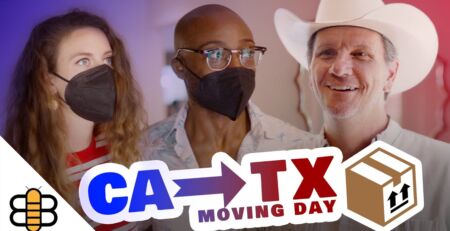
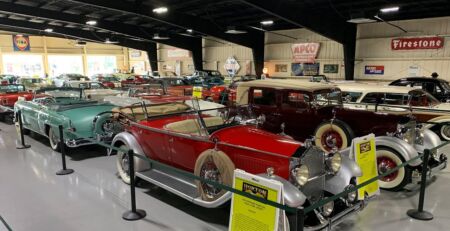
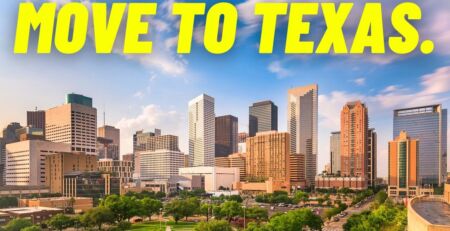
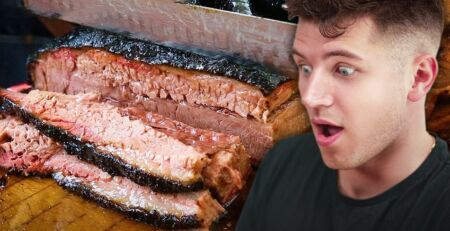
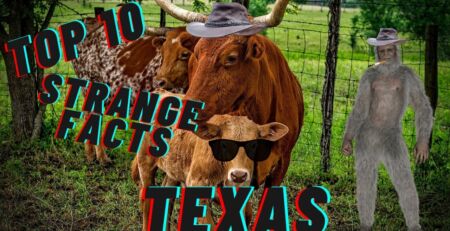
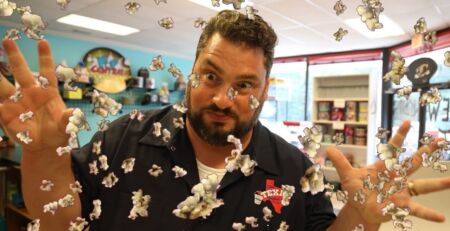
Leave a Reply
You must be logged in to post a comment.